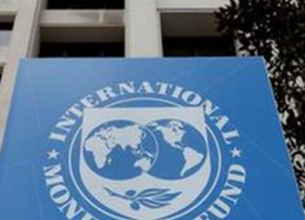SPECIAL DATA DISSEMINATION STANDARDS (SDDS) OF IMF
27, Aug 2019

Prelims level : International Economics
Mains level : GS-III- Effects of liberalization on the economy, changes in industrial policy and their effects on industrial growth
Why in News?
- In 2018, India failed to comply with multiple requirements prescribed in the Special Data Dissemination Standard (SDDS) mandatory for all IMF members.
Special Data Dissemination Standard (SDDS):
- The SDDS is an IMF standard to guide member countries in the dissemination of national statistics to the public.
- It was established in 1996 to guide members that have, or might seek, access to international capital markets in providing their economic and financial data to the public.
- It is a global benchmark for disseminating macroeconomic statistics to the public. Its subscription indicates that a country meets the test of “good statistical citizenship.
- Countries that subscribe to the SDDS agree to follow good practices in four areas: the coverage, periodicity, and timeliness of data; public access to those data; data integrity; and data quality.
- India subscribed to the SDDS on December 27, 1996.
Indian datasets not Updated:
- India failed to comply with multiple requirements prescribed in the SDDS — a practice mandatory for all IMF members.
- Whereas comparable economies comprising the BRICS grouping of Brazil, China, South Africa and Russia, have maintained a near impeccable record in the same period.
- Also, India’s non-compliance in multiple categories in 2018 and to an extent in 2017 breaks with an otherwise near perfect dissemination record.
- When contacted, the IMF acknowledged India’s deviations but termed them “non-serious”.
- However, independent observers see these deficiencies as a result of indifference to data dissemination procedures.
Importance of SDDS:
- The IMF launched the SDDS initiative in 1996 to guide members to enhance data transparency and help financial market participants with adequate information to assess the economic situations of individual countries.
- The yearly observance report for each member country lists the compliances and deviations from the SDDS under each data category for that year.
- There are over 20 data categories which IMF considers for this report to capture a nation’s economic health including national accounts (GDP, GNI), production indices, employment, and central government operations.
A Recent phenomenon:
- India’s non-compliance with IMF standards is a recent phenomenon.
- When asked for the reason for the delays in 2018, Deputy Director in the Department of Economic Affairs termed it as a “one off event due to technical glitches”.
- They were made available on other (Indian) government websites on a timely basis through links on the NSDP to these websites”.
Implications of Non-Compliance:
- The IMF document states that monitoring observance of the SDDS is central to maintaining the credibility of the IMF’s data standards initiatives and its usefulness to policymakers.
- It further states that if the IMF staff considers a non-observance as a “serious deviation” then procedures would be initiated against the member country.
- When the IMF was asked to explain why India’s non-observance was deemed as non-serious, their statistical department persisted that this was due to “information availability in other government websites”.
- It added that “the forthcoming harmonisation of the NSDPs for all SDDS countries with those for SDDS Plus and e-GDDS countries (other similar standards)” will solve this issue.














